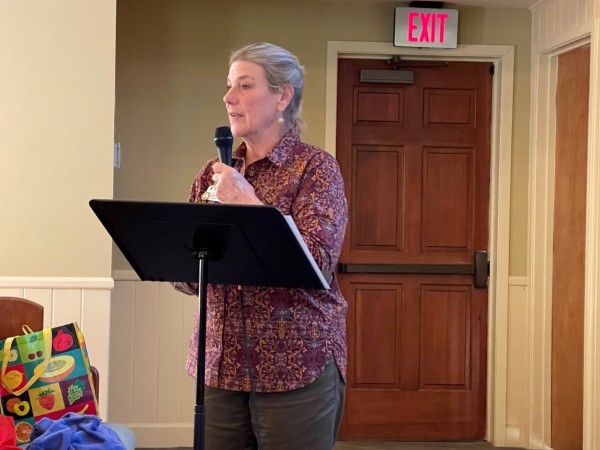Master Gardener Extension Volunteer Program
About the Georgia Master Gardener Extension Volunteer (MGEV) Program
The mission of the Georgia MGEV Program is to assist UGA Extension in providing consumer horticulture information and services to Georgia communities.
Master Gardeners are trained volunteers with unique skills and abilities, who share a love of plants, gardens, and an enthusiasm for learning. Master Gardeners teach community members how to use plants and gardening to improve the environment, personal health, and quality of life. Master Gardeners are representatives of UGA Extension and are crucial to the work we do in Chatham County. Chatham Master Gardeners serve in a variety of ways:
- Sharing information about plants and gardening at community events
- Answering home gardening and plant-related questions through our Master Gardener Helpdesk
- Teaching gardening workshops or delivering horticultural presentations to various audiences
- Introducing youth to the joy and wonder of plants
- Demonstrating sustainable garden management practices in prominent community locations, such as Bonaventure Cemetery and the Coastal Georgia Botanical Gardens
- Preparing media content, such as articles for newspapers, websites, or social media, about timely plant-related topics and UGA Extension resources
Volunteers benefit from the training, networking with other garden enthusiasts, and the opportunity to serve their communities. Master Gardeners say the friendships they make and experiences they have while volunteering together are among the most rewarding aspects of the program.
This program is ideal for individuals who have the time and dedication to make an impact in their community through volunteer service. Prior gardening experience is not a requirement, but a passion for learning and sharing horticulture is essential!

Becoming a Chatham County Master Gardener
Step 1: Application & Selection
Space in the annual training course is limited, and participants are selected based on their interest in being an Extension volunteer, their interest in community service, as well as their knowledge, expertise, and experience in related areas. Selected applicants will complete an interview, reference check, and background screening before being approved for the program.
Step 2: Training & Assessment
The Master Gardener Training Course prepares selected MGEV Trainees for their volunteer role. Trainees complete a minimum 50 hours of horticultural training consisting of lectures and hands-on activities. Participants also receive a copy of the 8th Edition Georgia Master Gardener Handbook.
To pass the course and continue in the program, Trainees must receive a course average of 70% or higher. Attendance, participation, quizzes, and tests contribute to the course average. Quizzes and tests for the course are conducted using the online classroom software eLearning Commons (eLC).
Step 3: Volunteer Service
Within the first year after training, the MGEV Trainee completes 50 hours of volunteer service. After completing 50 hours on Extension-approved projects, the Trainee is recognized as an official Master Gardener Extension Volunteer and receives a certificate of their title achievement.
To remain a current, active MGEV, volunteers complete at least 25 hours of volunteer service and 10 hours of continuing education each year and track their accomplishments using an online record-keeping system.
Notice for out-of-county applicants:
The Chatham Master Gardener program is open to residents of surrounding counties. However, Trainees are expected to complete their volunteer service within Chatham County on Extension-approved projects.
2024 Training Course
Each Wednesday, January 24th-May 15th, 2024
9:00 a.m. - 1:00 p.m.
Classes are held in-person at the Coastal Georgia Botanical Gardens in Savannah, GANo LONGER ACCEPTING APPLICATIONS AS OF NOVEMBER 1st, 2023.
If you would like to become a Chatham County Master Gardener Extension Volunteer, please fill out the contact form below to be notified of future training opportunities.
Topics Covered in the Training Course
Introduction to Cooperative Extension
Introduction to the Master Gardener Extension Volunteer (MGEV) Program
Serving as an MGEV
Gardening with Youth
Basic Botany
Plant Physiology: Growth and Development
Soils
Basic Entomology
Basic Plant Pathology
Plant Propagation
Principles of Integrated Pest Management (IPM)
Weed Science
Nuisance Wildlife
Principles of Organic Gardening
Composting
Water-Smart Landscaping
Landscape Site Analysis, Installation, and Maintenence
Urban Trees and Woody Ornamentals
Annuals and Perennials
Native Plants and Urban Ecology
Invasive Plants
Home Fruit Production
Vegetable & Herb Gardening
Turfgrass
Troubleshooting and Researching Plant Problems







